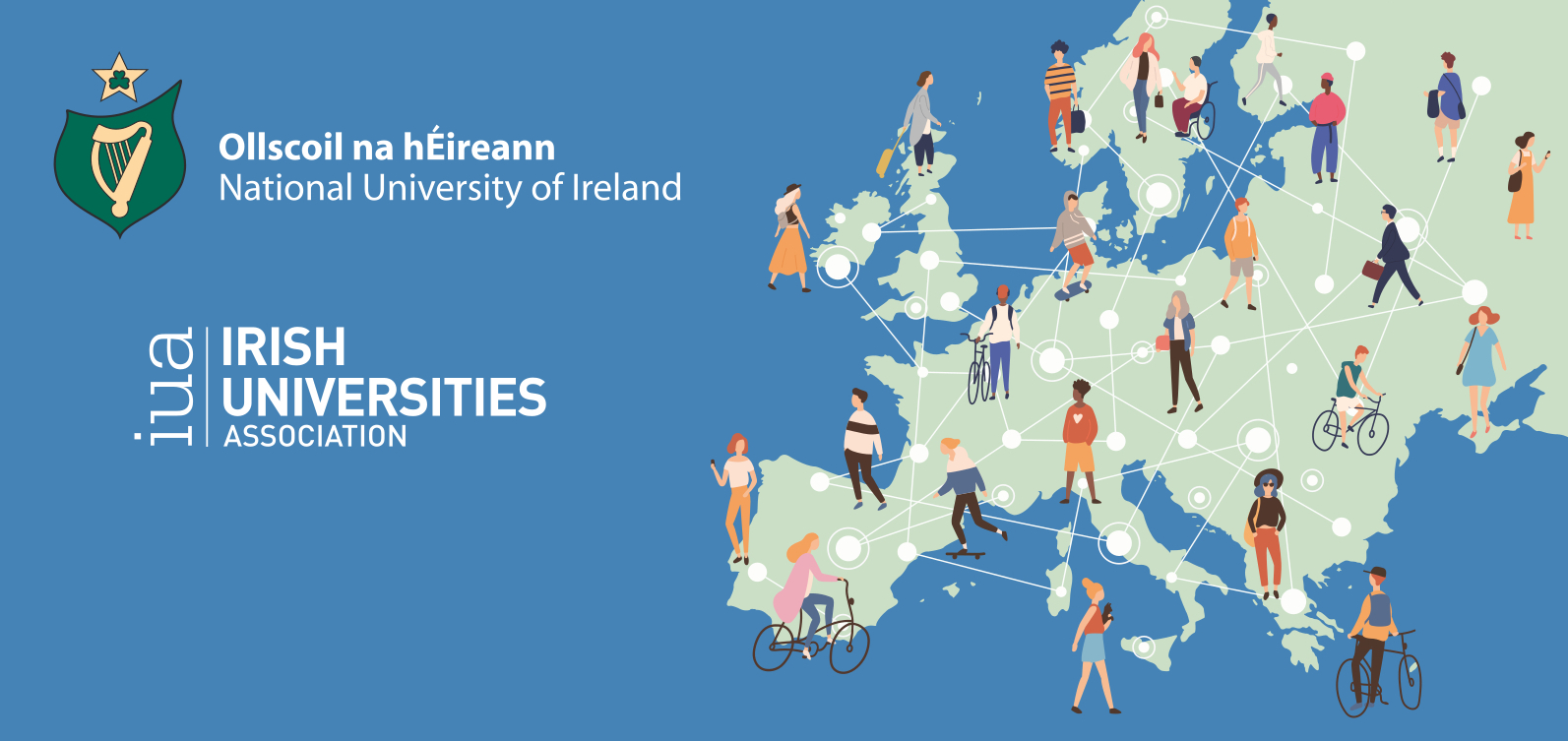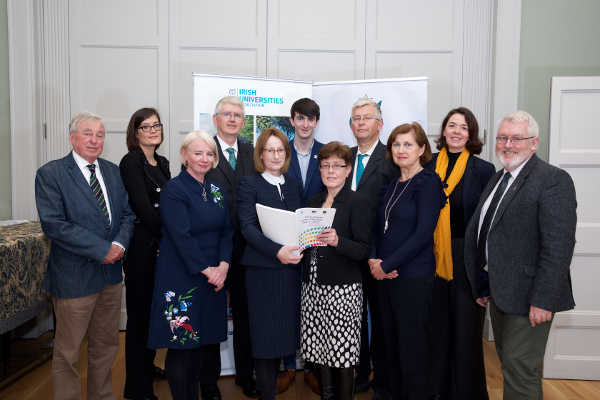15.05.2019
Ireland's progress in implementing the Bologna objectives:
greater mobility, HE co-operation and better outcomes for students
Goethe-Institut Irland,
37 Merrion Square East, Dublin 2
Ireland’s progress in implementing the Bologna Process was assessed by a half-day seminar on Wednesday 8 May, organised by NUI in collaboration with the Irish Universities Association and held in the Goethe-Institut in Dublin. Collaboration with the IUA, representing all Irish universities, helps NUI to achieve its strategic goal to ‘support Irish higher education and advocate for its advancement at home and abroad’ (see the NUI Strategic Plan 2018-2022).
The 1999 Bologna Declaration and subsequent Agreements led to the establishment of the European Higher Education Area (EHEA), which is intended to promote student and graduate mobility among the now 48 signatory countries. The Bologna reforms aim at ensuring comparability in the standards and quality of higher education qualifications among the signatory states, in co-operation with a number of international organisations, including the European Union and the Council of Europe. The process of implementation is overseen between ministerial-level meetings by the Bologna Process Follow-Up Group (BFUG). This twentieth anniversary year offers an opportunity to reflect on Ireland’s progress in implementing the Bologna reforms.
The seminar audience included a distinguished range of university officials, higher education researchers, diplomats, and civil and public servants. They heard from, and posed questions to, a range of speakers and panellists representing different perspectives on Irish higher education.
The keynote speaker was David Crosier, a higher education researcher from the Eurydice Network of the European Commission and Co-Chair of the BFUG Working Group on Monitoring. David was co-author of The European Higher Education Area in 2018: Bologna Process Implementation Report, and he was able to highlight data on Ireland’s comparative performance. Although Ireland generally has a reputation for enthusiastic implementation of the Bologna reforms, there are plenty of issues for which more can be done – and in some areas Ireland actually lags behind other EHEA countries. David observed that:
-
Despite high enrolment rates, Irish public expenditure on higher education is below the average for the 48 countries of the EHEA -
Ireland does not yet have automatic, state-level recognition of qualifications gained elsewhere in the EHEA – recognition is largely left to individual HEIs -
The European Credit Transfer System is well implemented in Ireland, and the National Framework for Qualifications is a model for other countries -
Ireland ranks among the EHEA countries with the highest levels of satisfaction among students -
Ireland is one of the few EHEA countries which use financial incentives and targets to stimulate internationalisation -
Ireland ‘offers an inspirational example of long-term, coherent policy measures’ to overcome problems of under-attainment by disadvantaged groups -
Those involved with the successful implementation of Bologna reforms in Ireland could play an advisory role in other EHEA countries
The seminar audience also heard from Aaron Frahill, Vice President for Education at University College Cork Students’ Union, who offered insight into what the Bologna Process means for Irish students. He highlighted how disadvantaged and marginalised groups may perceive that mobility opportunities such as the EU’s Erasmus+ programme are ‘not for them’, and that dedicated funding and support mechanisms are needed to overcome this.
The perspective of Irish employers was provided by Maeve McElwee, Director of Employer Relations at Ibec. She emphasised that the comparability of higher education qualifications within the EHEA both helps employers in the recruitment process and also helps attract international talent into the Irish labour market.
The seminar concluded with a wide-ranging panel discussion chaired by Dr Deirdre Lillis of TU Dublin, who is both a member of the HEA board and also the NUI Senate. The three speakers were joined by:
Prof. Pól Ó Dochartaigh, Registrar and Deputy President of NUI Galway; Barbara Kelly, Director of Qualifications at Quality and Qualifications Ireland; Dr Aline Courtois, Lecturer in Education at the University of Bath and former holder of an NUI Post-Doctoral Fellowship in the Social Sciences.
Dr Lillis led a wide-ranging discussion which explored related domestic and European issues. The panel provided insights around domestic challenges in higher education – funding, financial challenges for participation in Erasmus+, and aligning higher education to labour market needs – along with larger reflections on the future of the EHEA in a global context.
Video from the event
Images from the event
Further information contact:
Patricia Maguire,
National University of Ireland,
49 Merrion Square, Dublin 2.
T: 353 (0)1 4392424
Twitter: @NUIMerrionSq
#BolognaInIreland
Facebook: National University of Ireland
« Previous
























